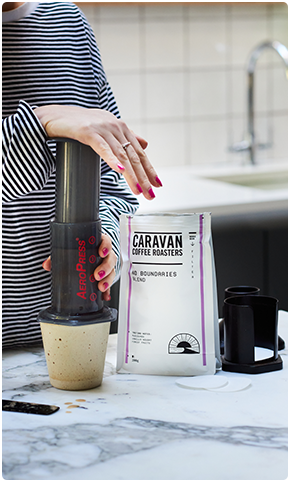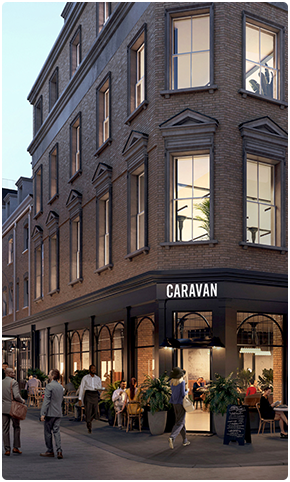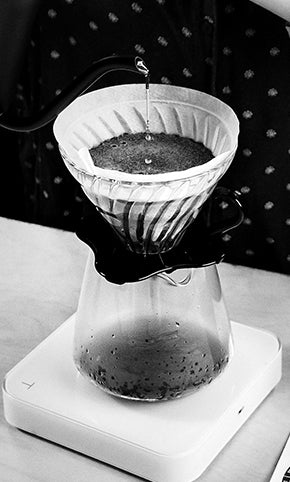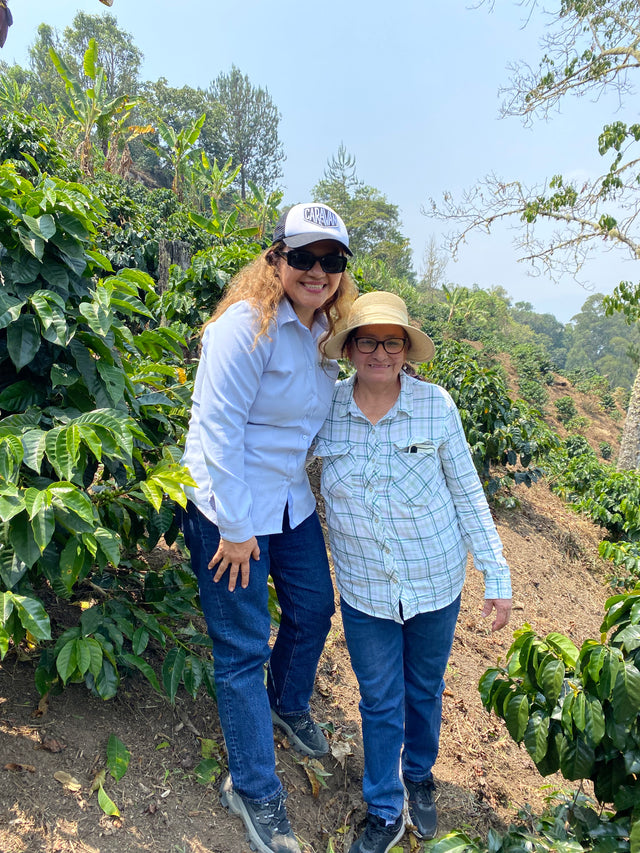La Nueva Natural
Want to recreate the Caravan experience at home? Check out our recipe book, Caravan: Dining All Day.
La Nueva Natural
-
Region
Santa Ana la Montaña, Fraijanes
-
Varietal
Catuai, Pache, Typica
-
Elevation
1750 masl
-
Farm / Producer
Finca La Nueva / Ovidio Garcia
-
Process
Natural
Guatemala as an origin has traditionally been known for its washed processed coffees – the sparkling acidity of the high-grown Huehuetenango and other volcanic highlands, and the sweet, clean and nutty profiles of the regions sitting at lower elevations. But recent years have seen a surge of interest and experimentation into natural and honey process coffees – aided by the proliferation of knowledge from other origins which have perfected the process.
Ovidio Garcia is one such farmer who has embraced this new-wave of processing. Having worked in coffee production from a young age, first as a picker working at farms across the Fraijanes region with his father, he started his farm La Nueva or “The New” – representing a fresh start and new vision – with his first planting of coffee trees in 1987. Having produced purely washed coffees (as was the norm) until 2 years ago, Ovidio started to experiment with natural and honey process coffees.

These methods imprint a distinct note of the process itself onto the final cup, enhancing the fruity and rich character of the coffee. When executed well, they can create vibrant and complex cups with great sweetness. Coffee producers based in lower elevations such as Fraijanes that would struggle to produce very high scoring coffee (due to the hotter temperatures & increased plant stress at lower altitudes) can use natural and honey processing to add complexity to their coffee, and therefore increase the final value, meeting or exceeding those grown at higher elevations.
Guatemala has experience more frequent and severe droughts and shifting rainfall patterns, and so it is a natural (no pun intended) move that as climate change continues to disrupt the normal meteorlogical cycles we will see more producers adopting a shift to processing styles like honey or natural, where significantly less water is used.
In traditional washed processing, water is used to soak, ferment, and wash the coffee. This water, once used, becomes saturated in coffee sugar and requires treatment before being returned to the ecosystem. In addition, low-water methods of processing – honey and natural – have an additional benefit for lower altitude producers, as the hotter and drier temperatures closer to sea level are perfect for drying these coffees evenly, avoiding the defects that can occur when natural or honey coffees are dried in humid or cold enviroments such as those found at higher altitudes.
Ovidio’s experiment has been a stunning success so far, winning several prizes in regional competitions. He picks at peak ripeness, and uses a water soak stage to both remove floating underripes and to cool and homogenize the temperature of the cherries. This step both improves the overall quality of the lot and allows much more control over the crucial first 24hrs of fermentation and drying, where over-fermented flavours are most likely to creep in.
The end result is an expression of Ovidio’s hard work and passion for quality which we’re excited to share.

Caravan Coffee Roasters are proud members of 1% for the Planet. For more information please visit https://www.onepercentfortheplanet.org
BREWING GUIDE
Embracing the cup style of the natural, we recommend slightly updosing (1:15.5 or 64g/L ratio) & dropping the brew water temperature down to 92-94c. For the hotter days, try grinding a touch finer and replacing 1/3rd of your total brew water with ice in the carafe to make a delicious iced filter.








